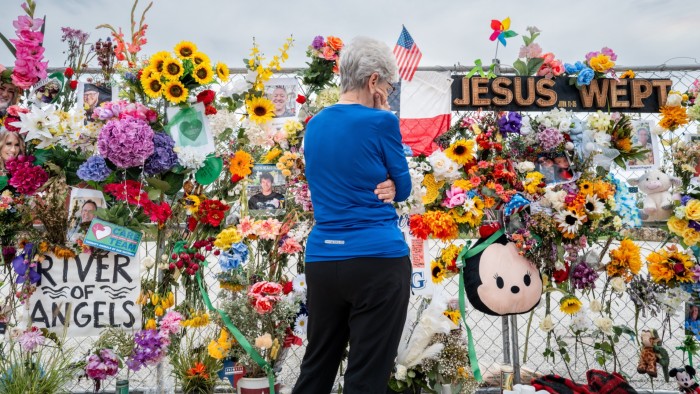Stay informed with free updates
Simply sign up to the Climate change myFT Digest — delivered directly to your inbox.
The writer is Robert Walmsley University Professor at Harvard and author of the upcoming ‘On Liberalism: In Defense of Freedom’
While America mourns the death of more than 130 people in horrifying floods in central Texas this month, large questions are starting to form. Does personal experience of a catastrophe change people’s views about big questions of public policy? Will current events change the views of Texans, and others in the US, about flood risks in particular or about climate change in general? And will they lead to greater support for weather-related action by the state of Texas or by the federal government in Washington?
It would be reasonable to insist that the answer to all three questions ought to be “yes”. Here’s why.
In deciding whether risks are serious, people use the “availability heuristic”. This means that they ask themselves whether they can think of cases in which those risks came to fruition (and hence are cognitively “available”). In the immediate aftermath of a terrible event — a plane crash, say, or a terrorist attack or wildfires — people tend to think that the likelihood of another such event is pretty high. There is evidence that after the attacks of 9/11, people avoided flying and shifted to driving. We tend to worry more about the problem of climate change on unusually hot days.
This raises the possibility that, for better or for worse, personal experiences of extreme weather are likely to have an impact on people’s views about climate change. Indeed, there is a lot of evidence to that effect. One study found that those who were personally affected by wildfires, hurricanes, tropical storms, heatwaves and drought were more willing to support a US policy that would lead to 100 per cent clean electricity generation by 2100. Another study found that self-reported personal harm from extreme weather (floods, tornadoes, wildfire) increased concern about climate change.
Notwithstanding such evidence, it would also be reasonable to speculate that the overall effect of personal experience is likely to be modest. You might well be right to think that most people’s judgments about climate change will be pretty stable over time, even in the face of horrific weather-related events. A key reason is the immense importance of starting points — and confirmation bias.
So if you begin with a firm conviction that climate change is serious and real, what just happened in Texas might lead you to nod your head and say: “See? Told you so. I knew it all along.” But if you start with a strong conviction that climate change is not a big problem, you might shake your head and say: “Ever hear of Noah’s Ark? It’s a tragedy, but if you think it is a result of climate change, you’re pretty naive.”
Indeed, a number of studies find that personal experiences with extreme weather can sometimes have little or no effect. One study in the UK found that a great deal does depend on people’s starting points. If you do not think climate change increases flood risk, personal experience with flooding will have little or no effect on you.
In the US, experience of flooding measured by proximity to the flooded area has been found to have a significant positive effect on climate change beliefs — but not among those who are sceptical about climate change in the first place.
How to make sense of these seemingly conflicting findings? With respect to climate change, starting points and political ideology might well have a larger impact than anything else. Even so, personal experiences with extreme weather can and sometimes do increase people’s concern. There is a good chance, though, that the effect will be concentrated among those who are already worried about it.
There are even wider lessons to be learnt here. In numerous areas, our personal experiences have an outsized impact on what we think and do. People who have experienced low stock market returns during their lifetime, for instance, are more reluctant to take financial risks. People who have had bad experiences with bonds are not so excited about owning them.
That’s not ideal. Whether we are speaking of the environment or investments, it’s best to look at data, not at personal experience. Still, our brains are wired to react to what we have seen and heard. In some domains, including climate change, political ideology does damp those reactions. But as weather-related tragedies become more numerous and more salient, we should expect an increasingly intense public demand that officials prepare in advance — and, very possibly, a significant increase in the percentage of people who think that climate change is both serious and real.
Climate Capital
Where climate change meets business, markets and politics. Explore the FT’s coverage here.
Are you curious about the FT’s environmental sustainability commitments? Find out more about our science-based targets here

